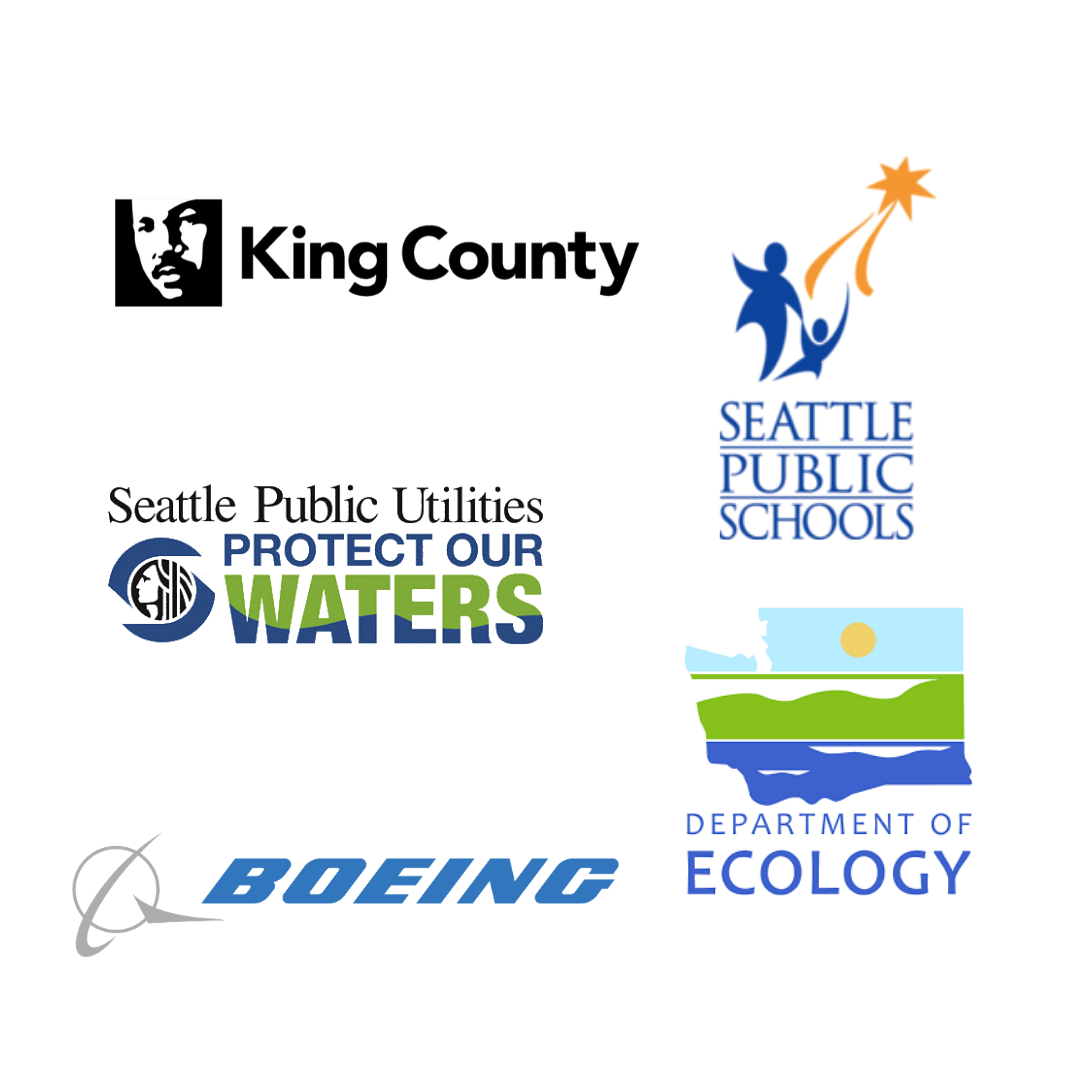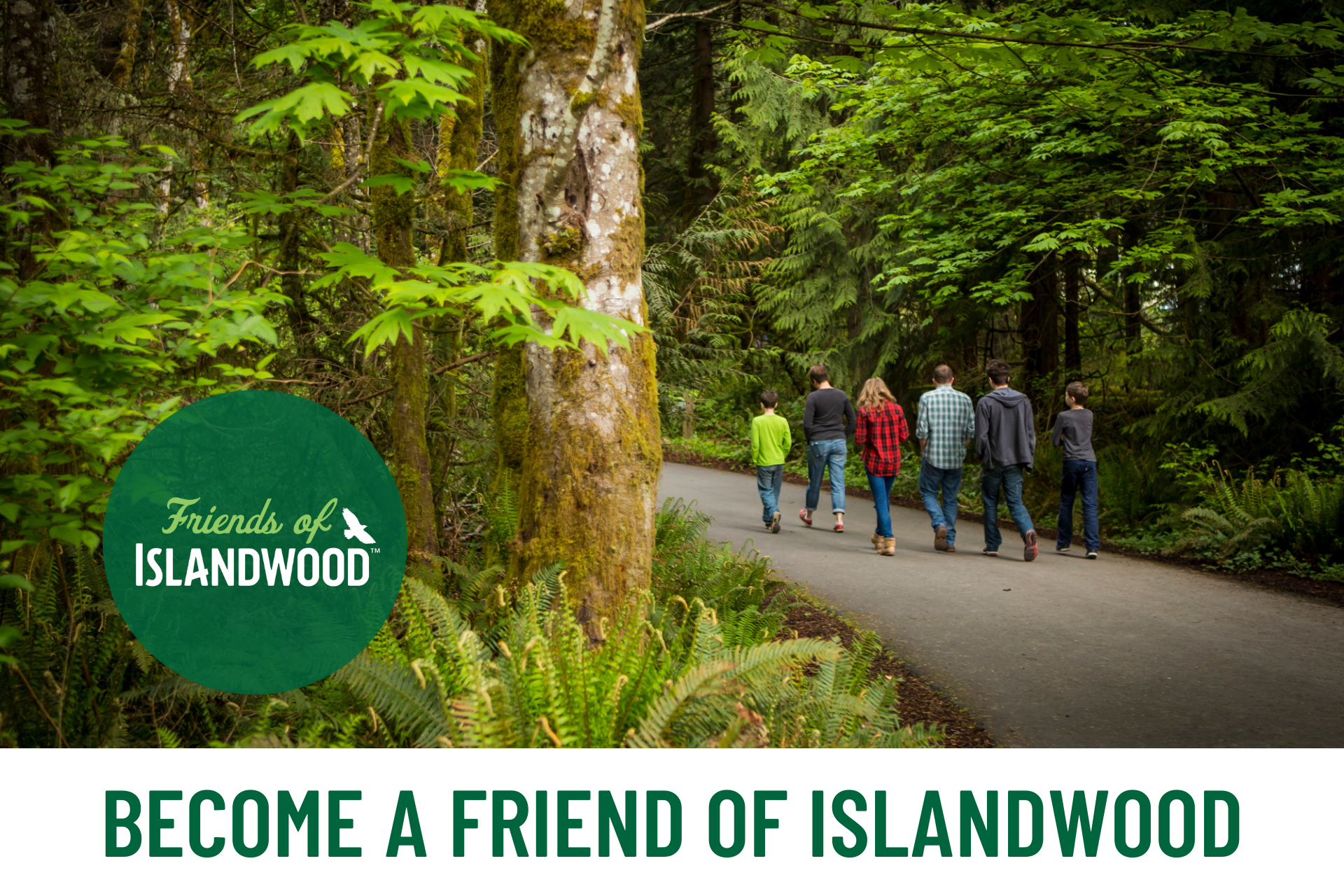Community Waters Science Unit
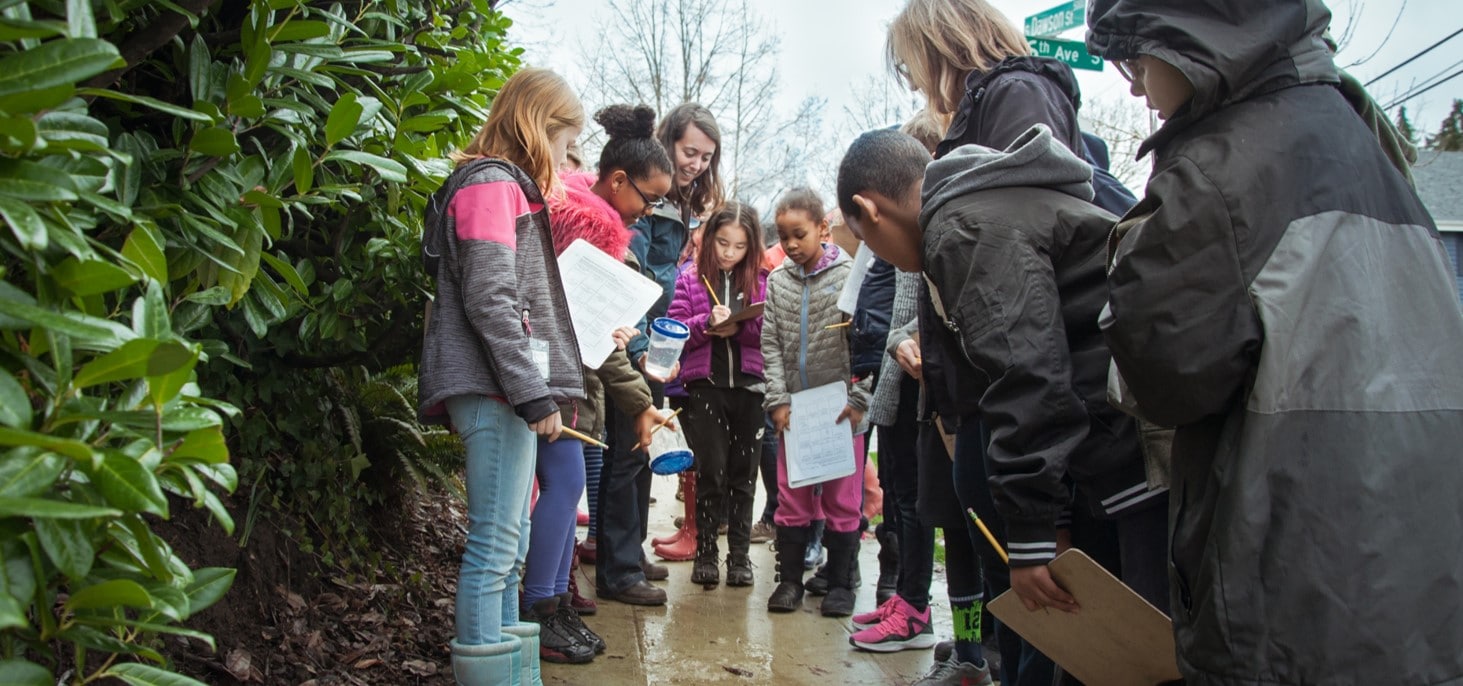
COMMUNITY WATERS
ABOUT THE UNIT
Community Waters, a 4th-grade science unit co-developed with Seattle Public Schools, involves students in asking questions and solving real community environmental problems through engineering. In the process, students deepen their science knowledge, come to view science as relevant to their lives and future, and engage in science in socially relevant and transformative ways.
The place-based, culturally responsive Community Waters unit engages students in science and engineering to understand and develop a solution to a real-world stormwater runoff problem in their community. Incorporating Next Generation Science Standards* and the Ambitious Science Teaching (AST) Framework, the Unit has three parts:
- Understanding Stormwater in the City:
Teachers elicit student ideas, support changes in thinking, and press for evidence-based explanations. The students watch a video of problems caused by stormwater and then add their personal understanding of stormwater to an explanatory model. Classroom lessons and outside investigations help refine their understanding and revise their explanatory model. - Using Engineering to Solve a Stormwater Problem:
Students apply their understanding to develop a solution for a stormwater runoff problem at a specific site (likely in their schoolyard). Students use an Engineering Design Process to define the problem, develop solutions, and optimize their selected solution. - Sharing their Solution:
At the end of the unit, the students share their solutions with their classmates and/or local stakeholders.
*Next Generation Science Standards is a registered trademark of Achieve. Neither Achieve nor the lead states and partners that developed the Next Generation Science Standards were involved in the production of this product, and do not endorse it.
Our Unit was designed, tested, and refined with the following goals:
- Students will develop an understanding of stormwater runoff and the problems it can cause in an urban setting.
- Students will apply an Engineering Design Process towards solving stormwater related problems in their schoolyard or neighborhood.
- Students that might not otherwise be interested in science will be motivated and engaged by applying science and engineering on a real problem in their own community.
What students learn by the end of the unit:
- Water moves rocks, soils, and sediments and faster water moves larger rocks.
- Plants affect the physical characteristics of their region by reducing the movement of soils (erosion) and using and storing water.
- Flooding is a natural hazard that is made worse in an urban setting.
- Humans can take steps to reduce the flooding and its impacts.
- The criteria and constraints for a specific storm water problem in their community.
- Certain solutions will workbetter than others to solve a problem.
- A solution can be improved to work better in a specific situation.
What students learn by the end of the unit:
- Water moves rocks, soils, and sediments and faster water moves larger rocks.
- Plants affect the physical characteristics of their region by reducing the movement of soils (erosion) and using and storing water.
- Flooding is a natural hazard that is made worse in an urban setting.
- Humans can take steps to reduce the flooding and its impacts.
- The criteria and constraints for a specific storm water problem in their community.
- Certain solutions will work better than others to solve a problem.
- A solution can be improved to work better in a specific situation.
Community Waters is one of only four elementary school units and 12 total K-12 science lessons/units nationwide to be highlighted as an example of high quality Next Generation Science Standards curriculum design. The 2018-edition of the Community Waters Science Unit was reviewed by Achieve’s EQuIP Peer Review Panel for Science (PRP) and received the second-highest rating possible. View the rating here.
We are continually refining the unit and the feedback we received from the EQuIP panel will be helpful for future revisions. We plan on resubmitting an updated edition of Community Waters in the future with the goal of securing EQuIP’s highest rating.
INFORMATION FOR TEACHERS
Interested in teaching Community Waters in your classroom? We provide teachers with the content, direct support, and professional development they need to integrate the unit into their teaching.
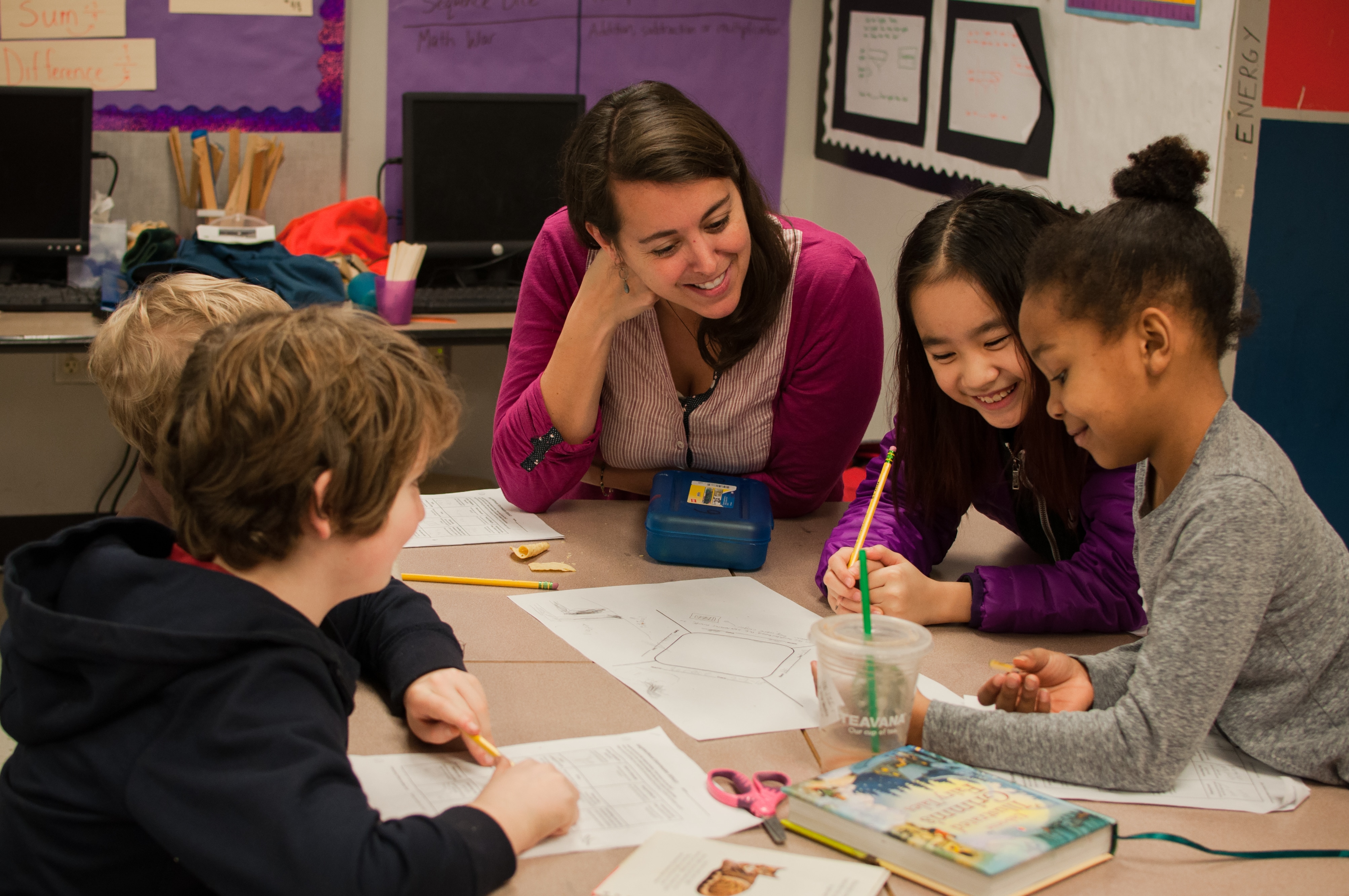
OUR IMPACT
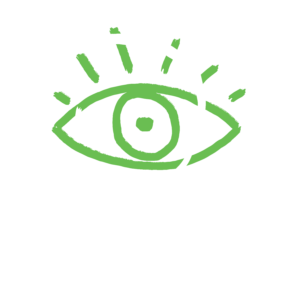
STUDENTS ARE HIGHLY ENGAGED IN SCIENCE AND ENGINEERING
Teachers rate student engagement with Community Waters as “very high,” with an average rating of 4.5 out of 5
STORIES
SO MUCH MORE THAN A PUDDLE
The fourth-graders at John Rogers Elementary School in North Seattle had found their problem site: the parking lot behind their school. Just one rainfall could turn it into a giant pool of water.
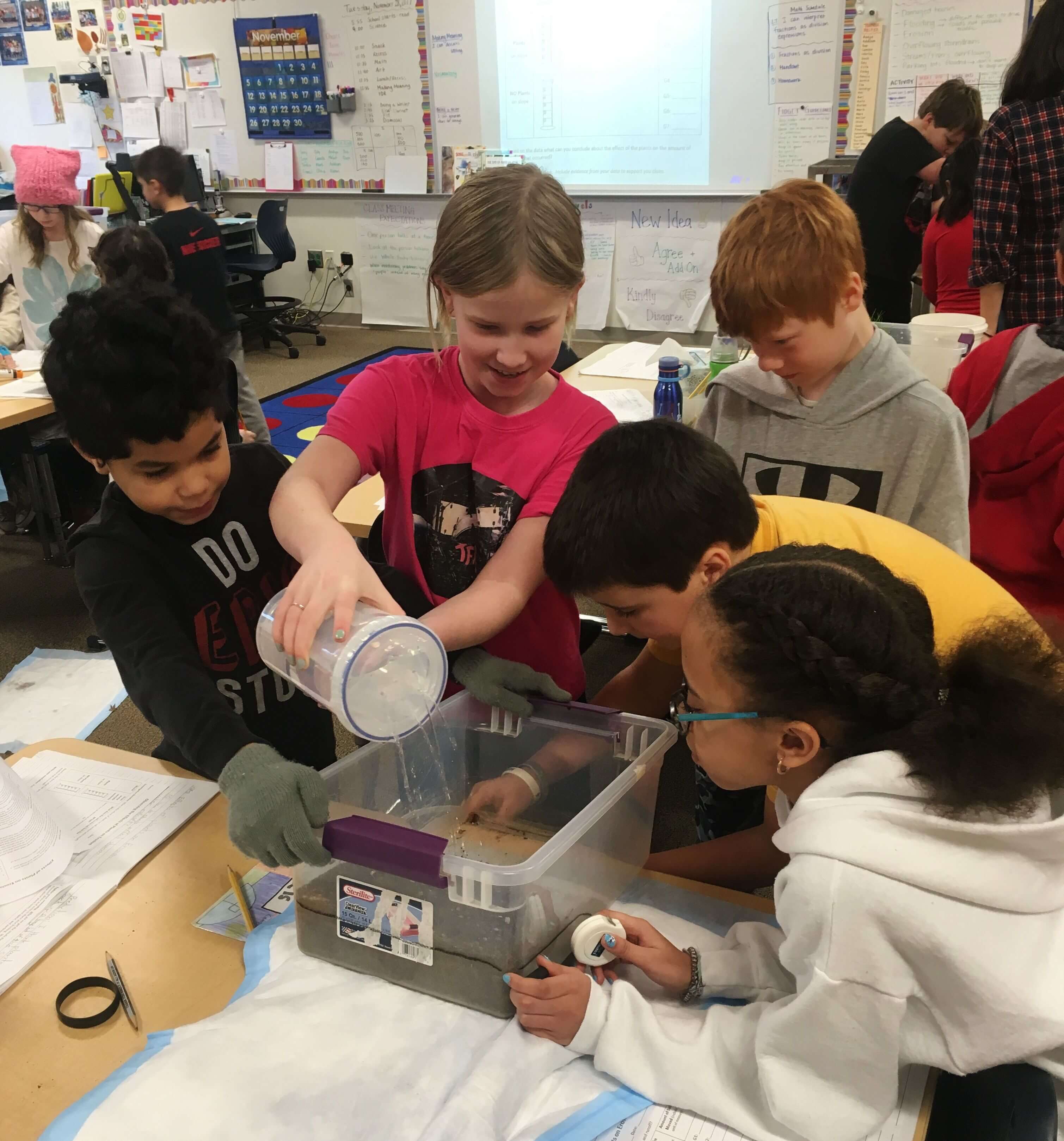
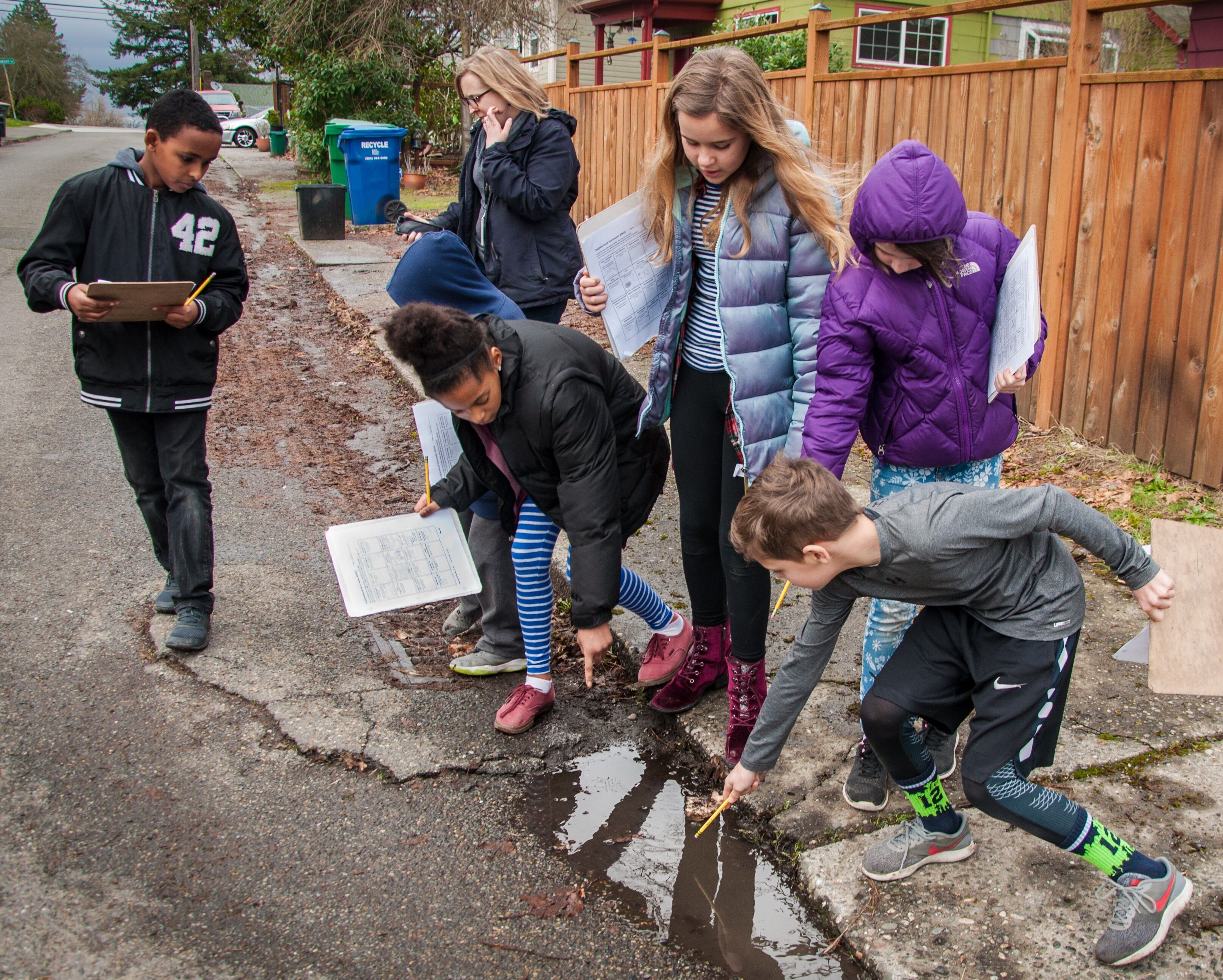
“The biggest connection for my students is realizing that science is not something done only in the classroom. This stormwater unit helped them to connect science and engineering issues in their own schoolyard and neighborhoods to solutions that they could design themselves. Kids are noticing a lot more potential areas of concern, and are thinking of ways to solve these real-life problems.”
–Aaron Kinion, Teacher at Broadview-Thomson K-8
IslandWood acknowledges that we live and work on the ancestral land of the Coast Salish people, who have been stewards of this region's land and waters since time immemorial, and who continue to protect these lands and waters for future generations, as promised by the Point Elliott Treaty of 1855, the Treaty of Point No Point of 1855, and the Treaty of Medicine Creek of 1854.
While the majority of our work takes place on Suquamish (suq̀ʷabš) and Duwamish (dxʷdɐwʔabʃ) land, we also conduct programs on the land of the Snohomish (sduhúbʃ), Puyallup (spuyaləpabš), Muckleshoot (buklshuhls), Skokomish (sqoqc’bes), and S’Klallam (nəxʷsƛ̕ay̕əm) peoples.
IslandWood is a registered 501(c)(3) charitable organization. Our tax ID number is 31-1654076.
4450 Blakely Ave. NE, Bainbridge Island, WA 98110 206.855.4300

